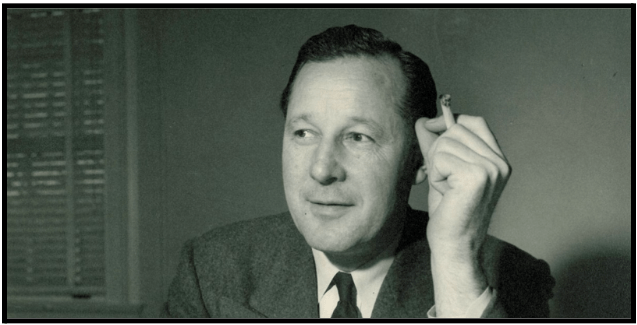Talking Big Ideas.
“Specificity is a crucial ingredient.”
~ Priya Parker, The Art of Gathering
Maryrose’s parents visited us this past weekend.
The weather was perfect on Saturday as we walked around downtown. Warm afternoon sunshine with a distinct autumn bite. Beautiful colors and changing leaves. Fall is officially here.
Just two weeks earlier my parents visited. We took the iconic train ride from Durango to Silverton. (My dad made a video of our adventure.) When we left Durango it was summer, and when we arrived in Silverton a few hours later – elevation 9300 feet – it was already fall.
The experience made me think about the changing of the seasons. A puzzle our ancestors pondered since the dawn of time.
Ancient Chinese blamed a dragon named Zhulong. Certain Native Americans believed in a beautiful season-changing Maiden. But the most famous explanation throughout history may be the Greek myth of Persephone.
One day Persephone was picking flowers in a field. Hades, the king of the underworld, suddenly burst through the Earth and abducted her. Persephone’s mom was devastated and worked out a deal with Hades to release her.
Persephone would spend part of the year with Hades and the rest of the year with her family. While she was underground her mom made the world cold and bleak. And when she returned home warmth and vegetation would follow.
According to the ancient Greeks, the seasons are determined by Persephone’s location.
Today, we understand that the Earth rotates around the sun at a 23-degree tilt. Summer is simply the result of being angled toward the sun. And winter comes from being angled away.
In the gif below, summer in the northern hemisphere occurs on the right side of the diagram and winter occurs on the left:
While I doubt many people still believe the myth of Persephone, Nobel Laureate Richard Feynman taught that it’s really easy to be fooled. We are tempted to believe all sorts of things that aren’t true.
Progress in life, he said, depends on our ability to not fool ourselves.
The physicist David Deutsch goes even further in his book The Beginning of Infinity. He makes a compelling case that all progress in the universe comes from replacing bad explanations with good ones.
Skill development is just like science in this regard. Good explanations are essential to growth. And they tend to be specific – like a 23 degree axial tilt – while bad explanations are often vague and abstract.
The author Tim Harford is an award-winning public speaker. He says that it’s hard to get good explanations on how to improve his presentations. People tend to be vague. They’ll say something like, “you did great!”
Harford doesn’t want to be fooled, so he always asks people that he trusts, “what is one specific thing I can do better?”
The more specific and honest the feedback, the better it explains how to make progress.
I sometimes ban the word great during feedback sessions in our workshops. People love to say their colleagues were great at presenting. I hear this all the time. Even when it isn’t true. In addition to being dishonest, great is so vague that it’s not helpful.
My favorite example of this is from the movie Captain Fantastic. An eccentric dad has banned the word interesting. He’s having a conversation with his daughter Kielyr:
Dad: What are you reading? Lolita? I didn’t assign that book.
Kielyr: I’m skipping ahead.
Dad: And?
Kielyr: It’s interesting.
Siblings jumping in: Interesting! Illegal word! Dad, Kielyr said interesting!
Dad: Interesting is a non-word. You know you’re supposed to avoid it. Be specific.
The dad presses his daughter and she gives a vague plot overview. He presses again and helps her to draw out specific details and personal feelings that bring the book to life. She beams with pride after realizing how effective her analysis becomes.
The brief scene is excellent and worth watching:
We can train ourselves to be just as specific and honest.
It takes effort. Maryrose and I ran several workshops this week and at the end of each we asked the participants:
What is one specific thing you commit to doing to improve your presentation before we get together again?
This final question works like magic. It encourages everyone to take all the feedback they’ve received from themselves and others and draw out one clear action item.
Feedback that is specific and honest is an antidote to being fooled. Consider this feedback to a colleague:
You did great! I can’t think of anything you can improve.
Compared to this:
Your inflection and enthusiasm were fantastic. To take it to the next level, see if you can ditch your script and share your stories from the heart. Give more eye contact to the left side of your audience. You focused mainly on the right side.
Specific + Honest = Useful
It takes effort to give good feedback. We’ve discussed before how our default is to be vague and lie to our colleagues. And to be cruel to ourselves.
Think about the feedback you give yourself. This is a common self assessment I hear:
My voice is so annoying. My stories are boring and I put my audience to sleep. I’m not a natural at this and I’m never gonna be good.
That kind of feedback is dishonest. The speaker is fooling themselves. With some coaching we can transform it:
My opening was catchy and vivid. I like how I front loaded the story to get the audience’s attention. I can add more variety to my vocal pacing. And get more excited during the fun parts of the two stories I share.
I think of this transformation as a metaphorical changing of the seasons. From insecure adolescence to mature adulthood.
Insecure Adolescence → Mature Adulthood
We can apply it broadly. For example, which thank you letter do you think Aunt Helga would prefer:
Thanks for having us over! We can’t wait to see you again.
Thanks so much for hosting dinner on Sunday. Even though Maryrose grew up on a cattle ranch, she says your ribeye was as tasty a steak as she’s ever had! I really appreciate how well you listened and asked questions about our new house and our business. Your interest in our lives makes us feel loved. And the story you shared about getting lost in Italy was so funny! We laughed about it driving home. We’d love to host you for Thanksgiving.
People often default to fooling themselves. And using vague words. But life is full of color. Specific, honest language helps us to capture this color. To make our ideas be understood and remembered. To connect with others and grow.
As the author Patricia Madson writes, “Life comes to us as details. Look for them.”
***
![]() IDEA
IDEA
Be specific and honest.
Write a thank you note to someone today. You can physically write it out or simply send an email. Mention what you appreciate in detail. Be as specific and honest as possible. (Today’s challenge is inspired by Patricia Madson’s delightful book Improv Wisdom.)
***
For more like this:
If you find this useful, please subscribe to our free weekly newsletter.




